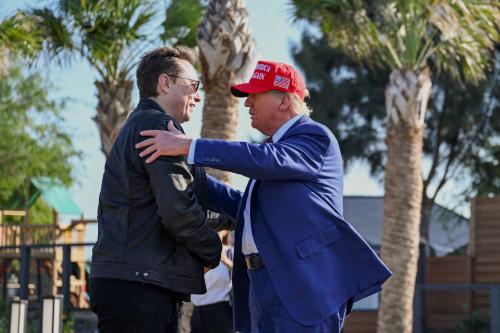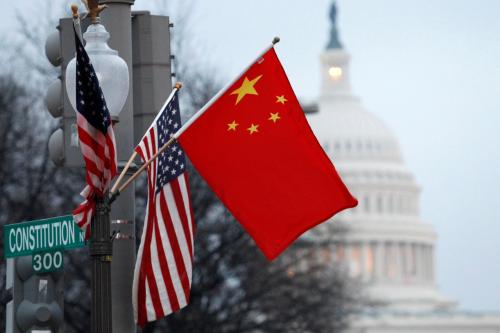Today we learned that after shifting to a new policy of engagement with one of our closest neighbors, President Obama plans to visit Cuba next month. This is a big step, to be sure, and gives the president an opportunity to show his support for the Cuban people directly to them. President Obama and President Castro met at the Summit of the Americas in Panama last April, but a bilateral visit like this will have much deeper impact, at least symbolically.
It is a big prize for the Castros, but in exchange for what? Why now? What can we expect to see happen on the island before and after he visits? How will the visit impact the relationship?
In some respects, it is surprising that the president would choose to travel now. In December, National Security Council staffer Ben Rhodes outlined a number of changes that needed to happen on the island before the president would travel, including expanded Internet access for the Cuban people and increased respect for human rights. Since then we have seen modest progress on Internet access expansion (though it remains controlled by the Cuban government with the help of the Chinese), a long-anticipated visit to the island by the head of the International Committee of the Red Cross, and some bilateral cooperation agreements between the United States and Cuba (on marine environment, law enforcement dialogue, and most recently civil aviation). But we’ve seen virtually nothing—symbolic or otherwise—on human rights.
Why now? President Obama made a big bet to engage Cuba and directly support the Cuban people, and he wants to make sure that it is irreversible. After 50 years of sanctions and mutual hostilities, he had rightly concluded that it was time to try something new. A raft of regulatory changes to facilitate greater travel, trade, and remittances are beginning to have an effect in both countries and creating constituencies for normalization, including lifting the embargo. But change is slow, especially on the Cuban side. Only time will tell if it was a good bet.
In the meantime, President Obama’s high popularity on the island gives him some space to make his visit meaningful. He plans to put pressure on Cuba to open up further opportunities for U.S. business and make it easier for the Cuban people to take advantage of increased engagement with American travelers and businesses. It is important for him to speak out on the need for economic and political liberalization, but it will all need to be couched very carefully to respect Cuba’s independence and sovereignty. This can be done by reminding Cuba of its own commitments to international human rights norms.
It is also critical that he speak in an unfettered way directly to the Cuban people and meet with diverse elements of civil society. Whether much will come of it remains to be seen, but hope and change can create happy surprises sometimes. And that’s what the Cuban people need more than anything else right now, or we will surely see many more of them crossing the border in Mexico or taking dangerous rafts to Florida.
April is an important month in Cuba this year as they will hold their seventh Party Congress to determine the direction of the country for the next several years. This is critical, as Cuba has been undergoing an economic reform process for the last five years and has yet to unify its dual currency system or sufficiently update its socialist economic model to be more market-oriented. Rodrigo Malmierca, the Cuban minister for foreign trade, visited Washington this week and spoke at the U.S. Chamber of Commerce, where he downplayed expectations for anything big coming out of the April Party Congress meetings and reinforced continuity of the gradual economic reform process. It would be surprising if President Obama’s visit has any direct bearing on the result of the Party Congress meetings, but it could play a big role in accelerating reforms on both sides in ways that will affect the U.S.-Cuba relationship for years to come.
As for U.S. politics, this is a bold move to reinforce Obama’s legacy of moving past a Cold War paradigm to direct engagement with adversaries like Cuba. All polls show this is popular, even among conservatives and Cuban Americans. It will sharpen the presidential campaign debate over this approach—we saw evidence of that in Marco Rubio’s comments in last night’s GOP debate—and it will stimulate those both for and against the embargo. The U.S. business community is on board, possibly because they are getting antsy in the face of European and other competitors beating them to the punch in the Cuban market, which further splits Republicans. But to have a meaningful impact on the U.S. business community, the embargo would need to be lifted, and that is still a long way off given the makeup of this current Congress.
Given the Cuban government’s reticence to concede much of anything up to this point, there may not be many developments on the island or in the bilateral relationship in the few short weeks before President Obama’s March 21 to 22 trip. The question is what happens after, particularly before November elections. On a related front, President Obama is popular among his Latin American peers, which gives him some leverage in the region including to prod them to press Cuba to accelerate reforms. The fact that he is continuing on to Argentina to make inroads with newly elected President Mauricio Macri after his visit to Havana is further indication of his desire to strengthen U.S. credibility in the region.
In sum, there is a longer game here that requires strategic patience. But for now, the president’s visit, which by itself is a positive move, should be measured against concrete results in the next nine months.
The Brookings Institution is committed to quality, independence, and impact.
We are supported by a diverse array of funders. In line with our values and policies, each Brookings publication represents the sole views of its author(s).



Commentary
Obama to Cuba: A gamble to end the embargo
February 18, 2016